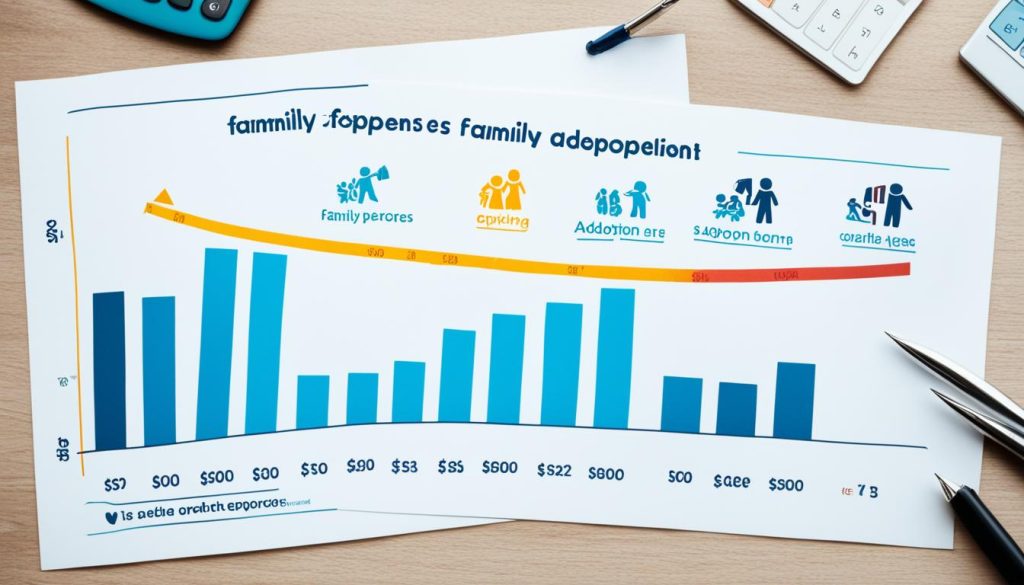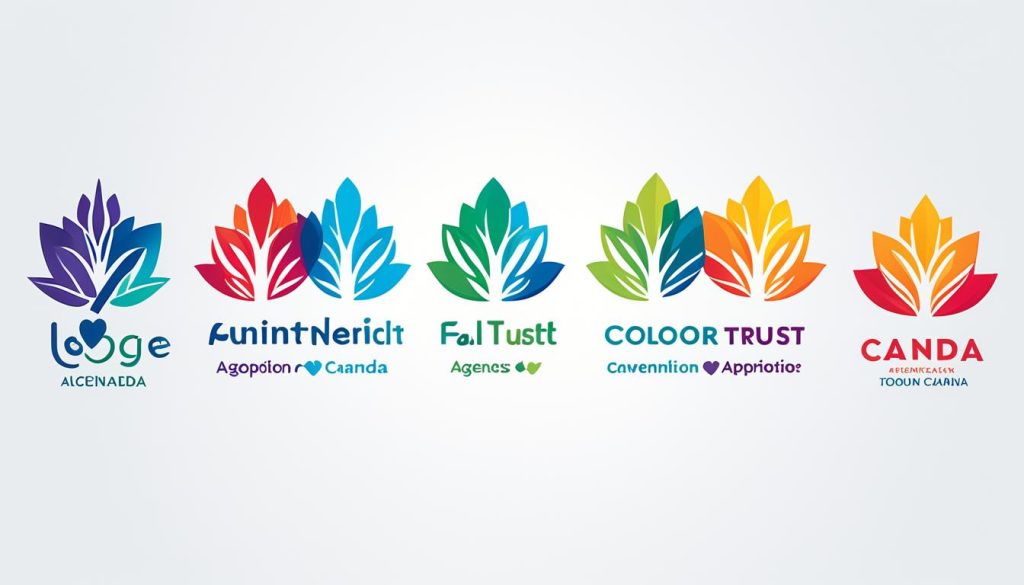Did you know that over 30,000 children in Canada are waiting to be adopted?1 Adoption can be a beautiful way to grow a family and provide a stable, loving home for a child. In Canada, domestic adoption is overseen by each province or territory, while international adoption is managed federally.2,3 This comprehensive guide will cover the eligibility requirements, types of adoption, and the detailed process of how to adopt a child in Canada.
Adoption can be a complex and often lengthy process, but for many families, it is a deeply rewarding experience. Whether you’re considering adopting a newborn baby, a child from the foster care system, or an international child, this guide will provide you with the information and resources you need to navigate the adoption process in Canada.
Understanding Adoption in Canada
Adoption is a legal means for another family to permanently take on the responsibility of raising a child and become the new family for the child. Sometimes birth parents are unable to care for their children, and other times, parents may seek a new family to care for their child for a variety of reasons. The goal of adoption is to match a family with a child based on the child’s needs, and this can take time with families and children potentially needing support for successful and stable placements.
Definition of Adoption
The adoption process in Canada involves the legal transfer of parental rights and responsibilities from the birth parents to the adoptive parents. This process permanently establishes the adoptive parents as the legal guardians of the child, with all the rights and obligations that come with parenthood. Canadian adoption laws provide a framework to ensure the best interests of the child are prioritized throughout the adoption journey.
Types of Adoption in Canada
There are several types of adoption available in Canada, including domestic adoption, international adoption, and open adoption. Domestic adoption refers to the adoption of a child within Canada, while international adoption involves adopting a child from another country. Open adoption allows for ongoing contact and communication between the birth family and the adoptive family, which can benefit the child’s sense of identity and belonging.

Regardless of the type of adoption, the adoption process in Canada, Canadian adoption laws, and requirements for adoption in Canada must be carefully navigated to ensure a successful and legally compliant placement. Prospective adoptive families should seek guidance from relevant authorities and adoption agencies to understand the international adoption in Canada process and requirements.
Eligibility Requirements to Adopt in Canada
Adoption is sought by a wide variety of individuals, couples, and family groups in Canada. Whether you’re looking to adopt a baby, a child from foster care, or pursue an open adoption, understanding the eligibility requirements is crucial. Each province and territory in Canada has its own set of guidelines, but the federal Adoption Act, 2013, provides the legal framework for all domestic Canadian adoptions.
Residency Requirements
Prospective adoptive parents must meet certain residency requirements to be eligible to adopt a child in Canada. This typically involves being a Canadian citizen or permanent resident, and in some cases, having lived in the province or territory for a specific period of time, often ranging from 6 months to 1 year. These residency requirements ensure that adoptive families have established ties to the local community and can provide a stable, long-term home for the child.
Background Checks
Adoption agencies in Canada will conduct thorough background checks on all prospective adoptive parents. This may include criminal record checks, child welfare checks, and in-depth home studies to assess the family’s readiness and suitability for adoption. These measures are in place to ensure the safety and wellbeing of the adopted child, as well as to determine the adoptive family’s ability to provide a nurturing and stable environment.
Mandatory Training and Assessment
Adoption agencies in Canada typically require prospective adoptive parents to undergo mandatory training and assessment programs. These programs help prepare families for the unique challenges and rewards of adopting a child, and may cover topics such as child development, attachment and bonding, and managing the emotional aspects of the adoption process. The assessment process also allows agencies to evaluate the readiness and capacity of the adoptive family to meet the needs of the child.

By understanding and meeting the eligibility requirements, prospective adoptive parents in Canada can take the first steps towards growing their family through adoption. Whether you’re considering adopting a baby, a child from foster care, or an open adoption, it’s essential to work closely with the appropriate adoption agencies and authorities to navigate the process successfully.
How to Adopt a Child in Canada?
Adopting a child in Canada can be a journey with various pathways, each with its own unique requirements and considerations. The first step for individuals interested in adoption is to gather information and understand the different options available across the country.
1. Public Adoption Process
The public adoption process in Canada is often facilitated through children’s aid societies, child welfare agencies, and central adoption authorities. These organizations work to match children in need of permanent homes with suitable adoptive families. The public adoption process typically involves extensive application procedures, home assessments, and mandatory training to ensure the child’s best interests are met.
2. Private Adoption Process
Private adoption in Canada allows prospective parents to work directly with birth parents or through private adoption agencies. This process often involves more flexibility in terms of the child’s age, background, and special needs. However, it also requires navigating complex legal and financial considerations, including the potential costs associated with [adoption costs in canada].
3. International Adoption Process
Families interested in adopting a child from another country can explore the international adoption process. This avenue involves working with approved adoption agencies and authorities to complete the necessary documentation, home studies, and travel requirements. The [adoption costs in canada] for international adoption can be higher than domestic adoptions, but it provides the opportunity to welcome a child from a different cultural background into the family.

Regardless of the adoption pathway chosen, it is crucial for prospective adoptive parents in Canada to thoroughly research the available options, understand the eligibility requirements, and seek guidance from the appropriate adoption agencies and authorities.
Navigating the Adoption Process
When navigating the adoption process in Canada, it’s crucial for prospective adoptive parents to connect with the appropriate adoption agencies and authorities. This may include contacting children’s aid societies, child welfare agencies, central adoption authorities, and adoption intake services to gather information, understand the requirements, and begin the application process.
Contacting Adoption Agencies and Authorities
The first step in the adoption process in Canada is to reach out to the relevant adoption agencies and authorities in your province or territory. These organizations can provide guidance on the specific eligibility criteria, document requirements, and timelines for the adoption process. They can also assist with matching prospective adoptive parents with children in need of a loving home.
Understanding Timelines and Waiting Periods
The adoption process in Canada can vary in length, depending on the type of adoption and the availability of children. Prospective adoptive parents should be prepared for a waiting period, as the process of matching a child with a family can take several months or even years. It’s important to work closely with the adoption agencies and authorities to understand the anticipated timelines and to be patient throughout the journey.

Preparing for the Adopted Child
Adopting a child is a significant life event, and it’s crucial for prospective adoptive families in Canada to be well-prepared for the arrival of the child. This includes understanding the unique developmental needs of the adopted child, as their early experiences may have impacted their growth and wellbeing.
Understanding Child Development Needs
Adopted children, particularly those from [open adoption in canada] or foster care backgrounds, may have experienced trauma, neglect, or disruptions in their early lives. As a result, they may have specific developmental needs that require specialized care and support. Adoptive parents must be prepared to address these needs, which may include physical, emotional, cognitive, or behavioral challenges.
Accessing Support Services
Fortunately, there are a variety of support services available to adoptive families in Canada to help them navigate the unique needs of their adopted child. These may include access to counseling, therapy, educational resources, and support groups specifically for [open adoption in canada] families. Adoptive parents should proactively research and connect with these services to ensure a smooth transition and the best possible outcomes for their child.
Post-Adoption Considerations
After the adoption process is complete, there are several important post-adoption considerations for adoptive families in Canada. If the adopted child is from another country, the family will need to apply for citizenship or permanent residency to bring the child to Canada. This can involve navigating immigration and citizenship requirements, as well as the associated paperwork and processing times.
Applying for Citizenship or Permanent Residency
When adopting a child from another country, the adoptive family must apply for citizenship or permanent residency to legally bring the child to Canada. This process can be complex, requiring extensive documentation, interviews, and processing times. Families should familiarize themselves with the specific requirements set forth by Immigration, Refugees and Citizenship Canada to ensure a smooth transition for the adopted child.
Accessing Post-Adoption Support
Adopting a child, whether domestically or internationally, can be a significant adjustment for the entire family. Adoptive families in Canada have access to a range of post-adoption support services, including counseling, support groups, and educational resources. These services can help families navigate the emotional and practical aspects of welcoming an adopted child into their home, whether they are adopting a baby or adopting from foster care in Canada.
Legal and Financial Considerations
Adopting a child in Canada involves a significant legal process, and it’s important for prospective adoptive parents to be aware of the relevant laws and regulations. The federal Adoption Act, 2013, provides the legal framework for all domestic Canadian adoptions, while each province and territory has its own set of guidelines and requirements.
Adoption Laws and Regulations
The Adoption Act, 2013, outlines the legal requirements for adoption in Canada, including the eligibility criteria, the application process, and the rights and responsibilities of adoptive parents. Prospective adoptive parents must comply with the specific laws and regulations set forth by their province or territory, which may include background checks, home studies, and mandatory training. Understanding the legal landscape is crucial to navigating the adoption process successfully and ensuring the best possible outcome for the child.
Adoption Costs and Financial Assistance
The cost of adopting a child in Canada can vary significantly, depending on the type of adoption, the province or territory, and any additional services required.Domestic adoptions through the public system typically have lower costs, often ranging from $5,000 to $15,000. Private and international adoptions, on the other hand, can cost between $20,000 to $50,000 or more. Prospective adoptive parents should research the available financial assistance programs, such as tax credits, subsidies, and grants, to help offset the expenses associated with the how much does it cost to adopt a child in canada? and how can i adopt a child for free in canada?
Emotional and Psychological Aspects
Adopting a child in Canada is a deeply emotional and psychological journey, not only for the adoptive family but also for the adopted child. Prospective adoptive parents must be prepared to navigate a range of complex emotions, from the initial excitement of welcoming a new family member to the challenges of fostering strong bonds and attachment.
Emotional Support for Adoptive Families
The adoption process can be a rollercoaster of emotions, and it’s essential for adoptive families to have access to comprehensive emotional support services. This may include counseling, support groups, and educational resources to help them navigate the unique challenges of open adoption in Canada. Adoptive families may also benefit from guidance on managing the expectations and emotions of the adopted child, who may be dealing with their own complex feelings about their adoption.
Bonding and Attachment with the Adopted Child
Forming strong bonds and attachment with the adopted child is a crucial aspect of the adoption journey. Adoptive parents may need to invest time and effort in building trust, understanding the child’s needs, and creating a nurturing environment that fosters a secure attachment. This process may be particularly challenging for children who have experienced early adversity or trauma, and adoptive families may require additional support and resources to help the child overcome these challenges and develop healthy relationships.
Conclusion
Adopting a child in Canada can be a profoundly rewarding experience, but it also requires navigating a complex and often lengthy process. Prospective adoptive parents must be prepared to carefully consider the legal, financial, and emotional aspects of adoption. This includes understanding the unique developmental needs of the adopted child and accessing the necessary support services to ensure a successful and stable placement.
Throughout the adoption journey, it is crucial for families to remain patient, flexible, and committed to providing a loving and nurturing environment for the child. By working closely with adoption agencies, authorities, and community resources, families can overcome the challenges and embrace the joy of welcoming a new member into their home.
Ultimately, the decision to adopt a child in Canada is a deeply personal one, but it can have a profound and lasting impact on the lives of both the adoptive family and the adopted child. With the right information, support, and dedication, the rewards of adoption can be immeasurable.
FAQ
1. How much does it cost to adopt a child in Canada?
The cost of adopting a child in Canada can vary significantly, depending on the type of adoption and the province or territory. Domestic adoptions typically range from $10,000 to $20,000, while international adoptions can cost between $20,000 to $50,000 or more. Some provinces and territories offer financial assistance programs to help cover the costs of adoption.
2. Is it hard to adopt a child in Canada?
Adopting a child in Canada can be a complex and lengthy process, but it is not necessarily hard if prospective adoptive parents are prepared and meet the eligibility requirements. The process involves completing home studies, background checks, training, and navigating the legal and administrative requirements, which can take several months to a few years.
3. Can you adopt a newborn baby in Canada?
Yes, it is possible to adopt a newborn baby in Canada, but it is often more challenging and competitive than adopting older children. Newborn adoptions typically involve private adoptions or adoptions through the child welfare system, and prospective adoptive parents must meet specific requirements and be open to the possibility of an open adoption.
4. What is the age limit for adoption in Canada?
There is no universal age limit for adoption in Canada, as the eligibility requirements vary by province and territory. Generally, prospective adoptive parents must be at least 18 years old, but there is no upper age limit. Some provinces and territories may have specific age requirements or guidelines, such as a maximum age difference between the adoptive parents and the child.
5. How can I adopt a child for free in Canada?
While there is no free adoption process in Canada, some provinces and territories offer financial assistance programs to help cover the costs of adopting a child. These programs may include subsidies, tax credits, or other forms of support for eligible adoptive families. Prospective adoptive parents should research the specific programs and eligibility requirements in their province or territory.
6. How many babies are waiting to be adopted in Canada?
The exact number of babies waiting to be adopted in Canada can fluctuate, as the adoption process is ongoing and the number of children in need of adoption varies. According to government data, there are typically around 30,000 to 40,000 children in the child welfare system in Canada, some of whom are available for adoption. The number of newborns specifically waiting for adoption is more difficult to estimate, as private adoptions and other factors can influence the availability of newborns




